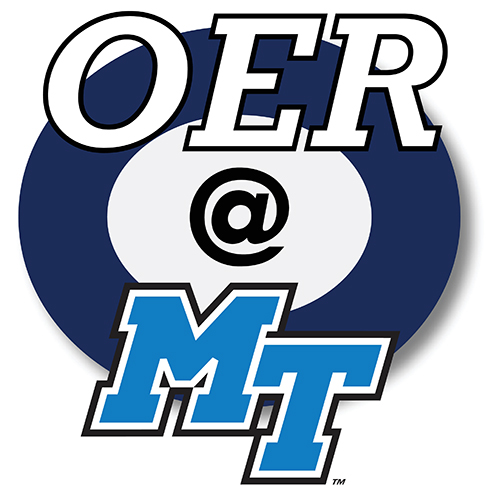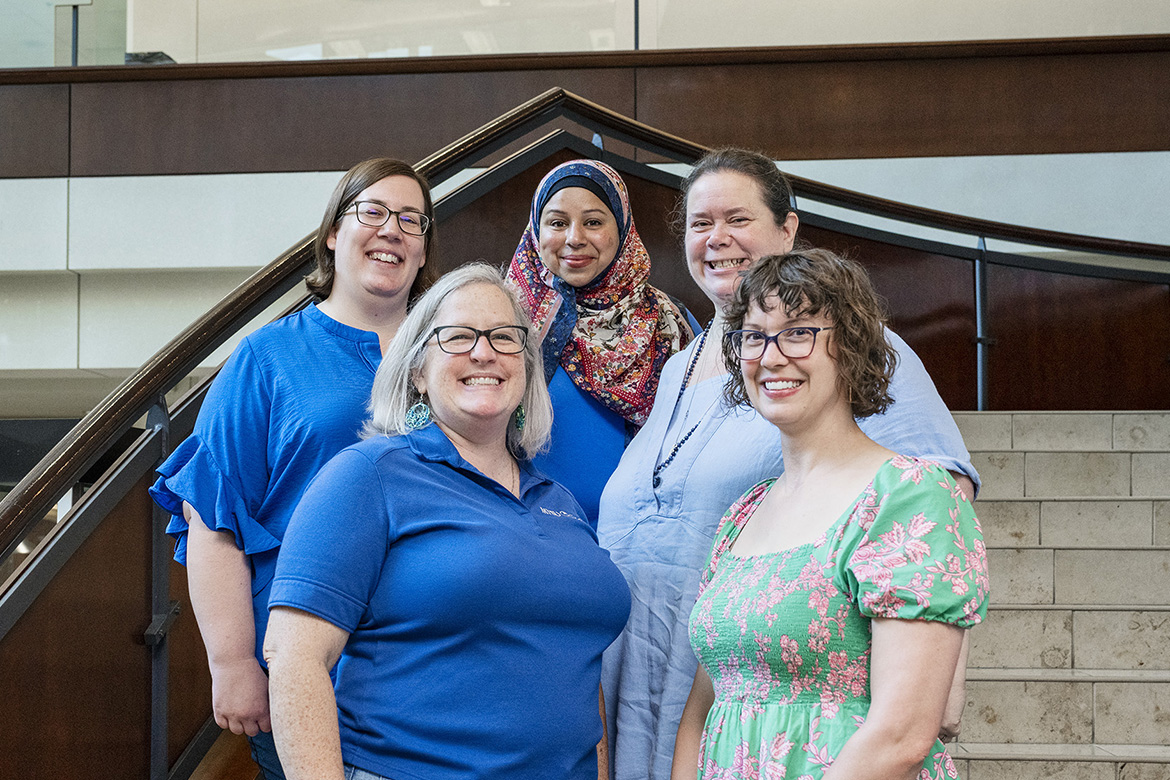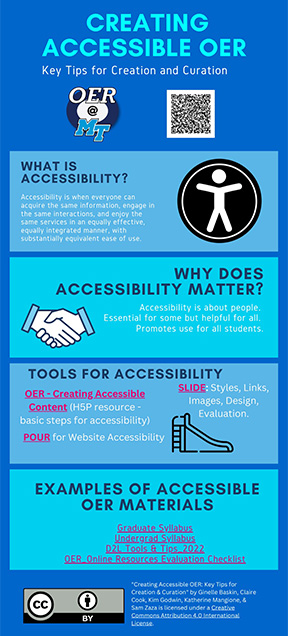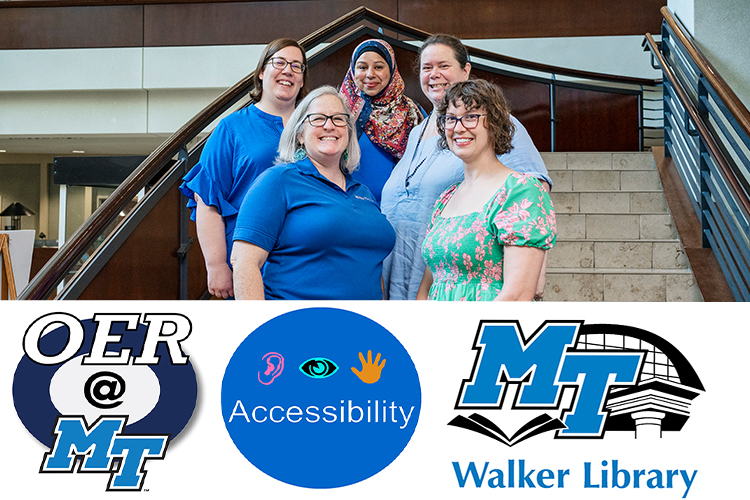While the cost of textbooks in higher education poses a significant challenge to many students, accessibility to course materials for those with disabilities is an even greater challenge for some whose limitations make learning more difficult.
So a multidisciplinary team of five Middle Tennessee State University faculty is working toward improving accessibility for all through Open Educational Resources, which are course materials made free to students through a variety of platforms.

The faculty team includes Ginelle Baskin, student success and open education librarian at James E. Walker Library; Claire Cook, associate professor in the Department of Human Sciences; Kim Godwin, assistant professor in the College of Education; Katherine Mangione, associate professor in the Department of Elementary and Special Education; and Sam Zaza, associate professor in the Department of Information Systems and Analytics.
In 2020, MTSU received a $100,000 grant from the Tennessee Board of Regents for bolstering the university’s Open Educational Resources program. A steering committee through the Provost’s Office disseminated grant money for professors to utilize OERs within their course material. Most were implemented in 2021-22.
Many of the courses utilizing OER are general education classes. And Baskin said those professors are encouraged to code their classes so students will be able to see which offer OER.
“We are trying to get faculty to use OER,” Baskin said. “We don’t expect people to understand the process right off the bat. But when you know better, we do better.”
Now that professors are getting into the rhythm of moving toward more OER materials, Baskin said the advisory group wanted to expand OERs and learn ways to provide more accessibility to MTSU students — those who are registered with the Disability and Access Center as well as anyone else who could benefit.

“We are making it accessible for somebody coming in that has a disability, whether it’s vision related or they’re using screen readers. We’re thinking about how we are designing materials,” said Baskin.
The group participated in six 90-minute sessions that explored how openly licensed resources can be key levers for both adapting existing resources to increase accessibility and using the Universal Design for Learning, or UDL, framework to design resources that are accessible for learners with disabilities from the start.
The series examined different aspects of accessibility in OER materials: collaborative questioning and universal design for learning, adapting and creating accessible OER, and curating and evaluating OER for accessibility.
“Accessibility allows us to help give voices to those who may have been marginalized,” Cook said. “But OER accessibility is really a need that can help everybody, and it helps us to be relevant and current. And as a higher-ed institution, that’s what our students want.

“The great thing about OER is you also have a little more control at who is telling the stories and include alternate perspectives.”
At the conclusion of the academy, all teams participating in the workshop series published an Accessibility in OER Implementation Guide in OER Commons, which is a public digital library of open educational resources.
MTSU’s implementation guide examines key structures and supports that can guide the work to support accessibility in OER on campus. The team also produced a Creating Accessible OER Infographic to help MTSU faculty get started on their own accessibility journeys.
Plans are to continue supporting accessibility in OER by presenting a series of workshops this fall via the Learning, Teaching and Innovative Technologies Center, or LT&ITC, located in Walker Library.
“We are trying to put together goals of how we promote OER and provide faculty workshops and trainings,” Baskin said. “MTSU’s Walker Library is part of an open education network, a group of higher-ed institutions that collaborate on open education. So faculty are not on their own.”
Faculty can learn more at the annual orientation or by visiting https://MTSU.edu/OER. Baskin is also facilitating a faculty learning community she’s titled, “Affordable Access for Student Success: An OER Learning Community.”
Also, a faculty workshop titled “Accessibility in OER Design” is scheduled for noon Wednesday, Sept. 6, in Room 348 of Walker Library.
More information will be forthcoming through the LT&ITC website soon at www.mtsu.edu/ltanditc/FLC/index.php.
— Nancy DeGennaro (Nancy.DeGennaro@mtsu.edu)


COMMENTS ARE OFF THIS POST